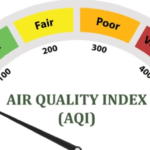Addiction is a powerful and often misunderstood challenge that affects millions worldwide. Whether it’s substance abuse, gambling, or other compulsive behaviors, addiction can derail lives, relationships, and health. Beating addiction is about transforming your entire life. The journey from struggle to success requires determination, support, and practical strategies that help you reclaim control and thrive beyond addiction. This blog post explores six important steps on the path to recovery and long-term wellness.
Understanding Addiction
The foundation of overcoming addiction begins with understanding its nature. Addiction is not simply a lack of willpower but a complex brain disorder that alters how you think, feel, and behave. It rewires reward systems, creating powerful cravings and compulsions. Recognizing this can help remove self-blame and shame, replacing them with compassion and a realistic outlook. Addiction often serves as a coping mechanism for deeper emotional pain or stress, so uncovering these root causes through honest self-reflection or therapy is vital. Awareness sets the stage for informed choices and strengthens your motivation to seek help.
Seeking Professional Treatment and Therapy
Professional treatment plays a vital role in the recovery process, offering structured support and evidence-based strategies tailored to individual needs. Therapy helps individuals identify triggers, change harmful behaviors, and address the underlying emotional or psychological issues tied to addiction. Many find that working with trained professionals significantly improves their chances of lasting recovery. At the San Diego Wellness Center, clients can access a range of services, from counseling to medically supervised detox, that support mental and physical healing. Engaging in therapy provides guidance and accountability, helping people stay on track when faced with challenges. It’s a meaningful step toward building a healthier, addiction-free life.
Building a Strong Support Network
Recovery is rarely a solo journey. Surrounding yourself with supportive people is crucial for beating addiction and maintaining sobriety. This network can include family, friends, support groups, or professional counselors. Trusted individuals provide encouragement, accountability, and a safe space to share struggles and victories. Support groups such as Alcoholics Anonymous or Narcotics Anonymous offer community and understanding from those who have walked similar paths. By leaning on others, you reduce isolation, gain valuable insights, and increase your chances of long-term success.
Creating Healthy Habits and Routines
One of the most effective ways to overcome addiction is by replacing destructive behaviors with positive, constructive habits. Establishing daily routines introduces stability and predictability, which can help break the cycle of addiction by reducing chaos and filling your time with meaningful activities. Incorporating exercise, balanced nutrition, adequate sleep, mindfulness practices, and enjoyable hobbies can improve your physical and emotional well-being. These habits restore your energy, boost self-esteem, and give you a renewed sense of purpose. As you build consistency, you become more resilient in the face of stress and temptation. A healthy routine becomes a strong foundation for long-term recovery and a life built on clarity, intention, and balance.
Developing Emotional Resilience and Self-Compassion
The road to recovery is rarely smooth. Emotional resilience, the ability to bounce back from setbacks, and self-compassion are vital qualities to cultivate. Addiction recovery often involves facing uncomfortable feelings and confronting personal challenges head-on. Instead of harsh self-criticism, practice kindness toward yourself, recognizing that mistakes are part of the learning process. Mindfulness and meditation can enhance emotional regulation, reduce anxiety, and increase awareness of triggers before they escalate. Developing resilience enables you to stay committed even when progress feels slow, turning obstacles into opportunities for growth.
Setting Realistic Goals and Celebrating Progress
Sustainable recovery is built on setting achievable goals and acknowledging every step forward, no matter how small. Breaking your recovery journey into manageable milestones prevents overwhelm and keeps motivation high. Goals can range from attending a certain number of support meetings to rebuilding relationships or returning to work or school. Celebrate your progress regularly, as this positive reinforcement builds confidence and reminds you that change is possible. Tracking your successes, reflecting on challenges, and adjusting goals as needed keeps your recovery dynamic and personalized, increasing the likelihood of lasting transformation.
Image source: https://unsplash.com/photos/text-5xYoebAZokc
Beating addiction and thriving afterward is a profound journey of self-discovery, healing, and growth. It requires understanding addiction’s complexity, building strong support systems, adopting healthy routines, seeking professional treatment, fostering emotional resilience, and setting realistic goals. While the path can be difficult, each step forward is a powerful victory. With determination and the right strategies, it’s possible to overcome addiction and to create a vibrant, fulfilling life beyond it. Your success story starts with the choice to begin, and every day is a new chance to thrive.













